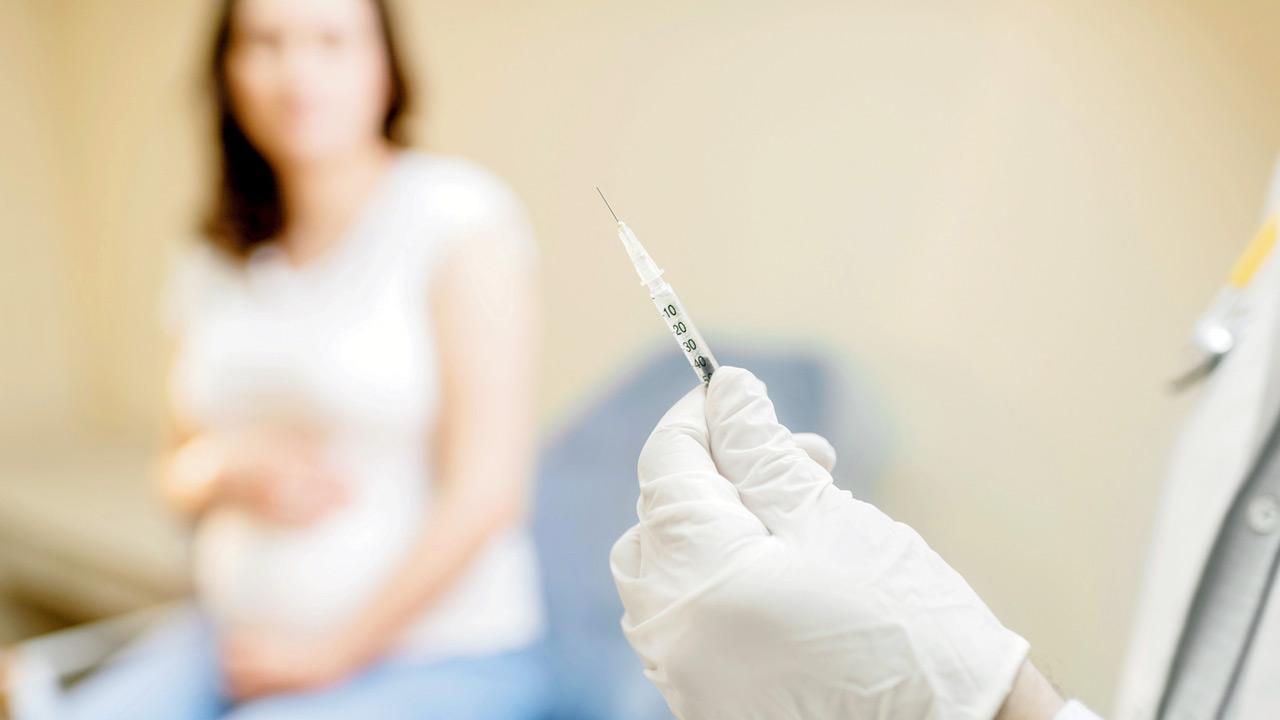Doctors at Sion hospital observe while pregnant women may not be more susceptible to the illness, physiological changes to their immune system can result in more severe Covid-19 symptoms

Doctors urged that women should make vaccination a part of their pregnancy plan. Representation pic
A Cohort study done at Brihanmumbai Municipal Corporation’s (BMC) Sion hospital has showed that although a majority of pregnant women who were Covid-19-positive were discharged without any major complications, severe maternal morbidity has been reported among the group, as opposed to non-Covid-19 pregnant patients.
ADVERTISEMENT
The study involved 46 pregnant women hospitalised at the hospital between April and December 2020. The women required ICU admission with severe morbidity.
“In our study, we observed pregnant ICU patients who had Covid-19 and those who did not. Maternal death in Covid-19 positive patients was 75 per cent and in non-Covid-19 patients, it was 31.57 per cent,” said Dr Niranjan Chavan, co-author and senior gynaecologist at Sion hospital.
He said that it is known that whilst pregnant women are not necessarily more susceptible to viral illnesses, physiological pregnancy-related changes to their immune system can be associated with more severe symptoms. “This is particularly true in the third trimester. Most pregnant women with Covid-19 infection are encountered with mild to moderate flu-like symptoms. Cough, fever, shortness of breath, headache, anosmia (complete loss of smell) and loss of taste are other relevant symptoms,” said Dr Chavan.
He added that more severe symptoms which suggest pneumonia and marked hypoxia are widely described with Covid-19 in older people, the immunosuppressed and those with chronic conditions such as diabetes, cancer or chronic lung disease. “These symptoms of severe infection were present in pregnant women, too,” said Dr Chavan.
More studies change opinions
Dr Sudeshna Ray, senior consultant obstetrician and gynaecologist at Jaslok Hospital said that worldwide, initial studies, especially with the first wave, did not show any significant effect on maternal or perinatal mortality or morbidity. She said opinions regarding outcomes have changed with the second wave and more robust studies worldwide.
“With the second wave, my experience along with that of other colleagues was different. My patients had unexplained stillbirths, increased hospitalisations in the third trimester, few ICU admissions and even one neonatal death. The experience in the government hospitals was almost similar to mine. The recovery rate from wards and ICUs has been almost 100 per cent but the anxiety/illness and hospital stay had a negative effect on the psychological stability of my patients,” said Dr Ray.
Reducing maternal mortality throughout the world by 2030 is a global pact through the Sustainable Developmental Goals (SDG). Gynaecologists have raised concerns and said the SDG have faced a major hindrance because of Covid-19, especially with higher rates of near misses and mortality in middle- and low-income countries.
“Apart from rolling up our sleeves and creating better infrastructure to handle Covid-19 during pregnancy, perhaps the best way to deal with it is to get women vaccinated as early as possible. The risk of Covid-19 during pregnancy is far higher as compared to the small potential risk of taking the vaccine, including fever and mild illness. Women should be encouraged to get vaccinated while planning a pregnancy, while pregnant and or during lactation,” said Dr Ray.
What are cohort studies?
Cohort studies are a type of medical research used to investigate the causes of a disease and to establish links between risk factors and health outcomes
75%
Mortality rate in Covid-19 pregnant ICU patients
 Subscribe today by clicking the link and stay updated with the latest news!" Click here!
Subscribe today by clicking the link and stay updated with the latest news!" Click here!






